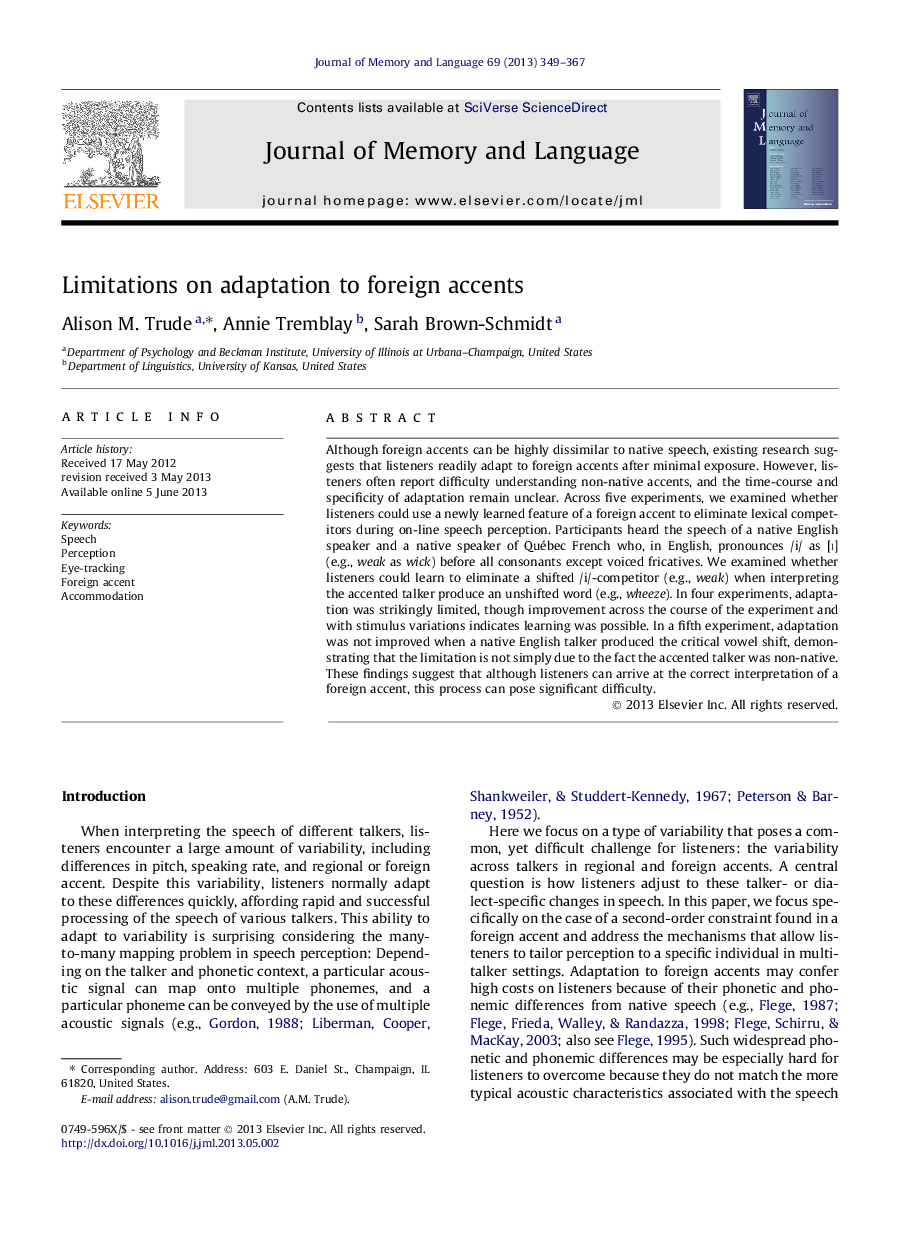| Article ID | Journal | Published Year | Pages | File Type |
|---|---|---|---|---|
| 931900 | Journal of Memory and Language | 2013 | 19 Pages |
•Listeners’ online adaptation to foreign-accented speech was tested with eye-tracking.•Despite high accuracy, listeners’ eye movements revealed processing difficulties.•Performance was best when accented words did not have a standard English homophone.•Offline tasks showing fast accent adaptation mask difficulties in online processing.
Although foreign accents can be highly dissimilar to native speech, existing research suggests that listeners readily adapt to foreign accents after minimal exposure. However, listeners often report difficulty understanding non-native accents, and the time-course and specificity of adaptation remain unclear. Across five experiments, we examined whether listeners could use a newly learned feature of a foreign accent to eliminate lexical competitors during on-line speech perception. Participants heard the speech of a native English speaker and a native speaker of Québec French who, in English, pronounces /i/ as [i] (e.g., weak as wick) before all consonants except voiced fricatives. We examined whether listeners could learn to eliminate a shifted /i/-competitor (e.g., weak) when interpreting the accented talker produce an unshifted word (e.g., wheeze). In four experiments, adaptation was strikingly limited, though improvement across the course of the experiment and with stimulus variations indicates learning was possible. In a fifth experiment, adaptation was not improved when a native English talker produced the critical vowel shift, demonstrating that the limitation is not simply due to the fact the accented talker was non-native. These findings suggest that although listeners can arrive at the correct interpretation of a foreign accent, this process can pose significant difficulty.
